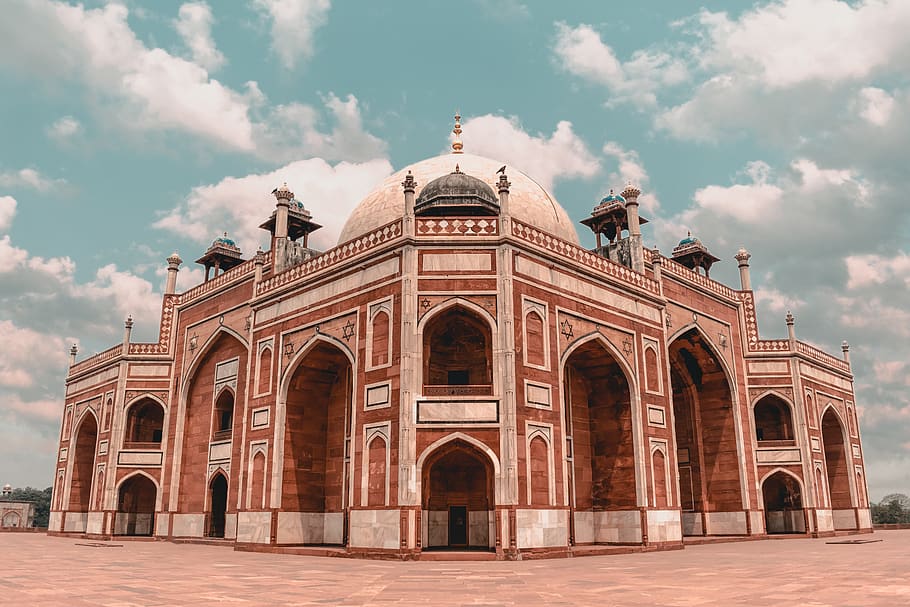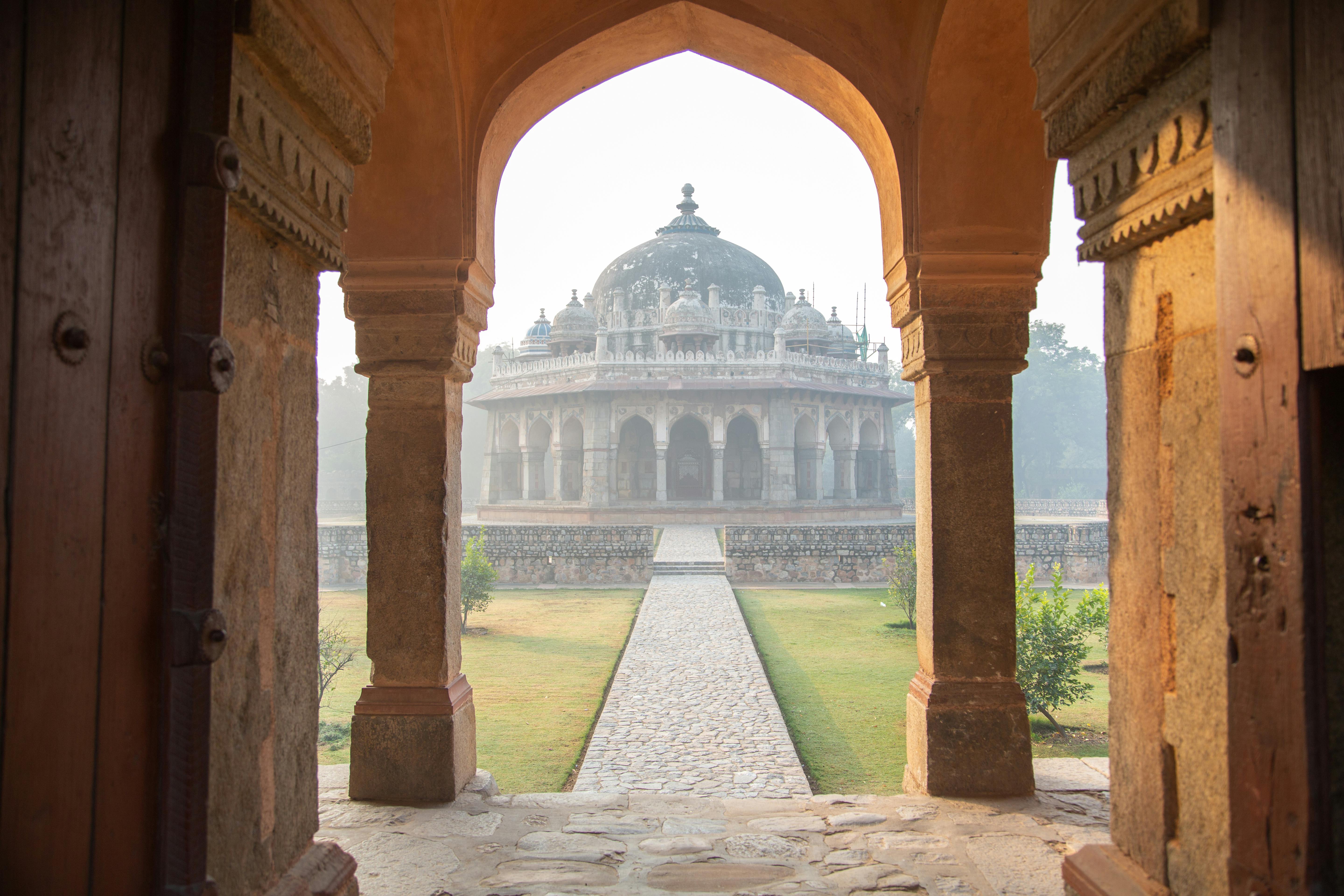

Humayun's Tomb
Historical Significance
Who was Humayun?
Humayun (1508-1556) was the second Mughal Emperor of India known for founding the city of Dinpanah, with its inner citadel at Purana Qila, and for his efforts to stabilize Mughal rule in India after inheriting a fragile empire from Babur.
Despite early challenges of being driven away from his empire, his patronage of arts and architecture brought significant Persian cultural influences that shaped subsequent Mughal artistic achievements.
Who built his tomb?
Humayun's Tomb was commissioned in 1560s and supervised by his son, Akbar, and his first wife, Empress Bega Begum (also known as Haji Begum). It was completed in 1570.
What makes it an important site to visit?
Humayun's Tomb marks the beginning of garden-style tombs in India, featuring the first "charbagh" layout. Its innovative design significantly shaped later Mughal architecture, most famously inspiring the Taj Mahal. It was also the first large-scale structure to prominently use red sandstone.
Beyond its architecture, the extensive complex served as a major burial site for the Mughal family. Its location near the Nizamuddin Dargah and the presence of other tombs in the vicinity, including those in Sunder Nursery, add to its historical importance.
What can I expect to see inside the Complex?
Within the Humayun's Tomb complex, be sure to explore these key sites:
Humayun's Tomb: The central and most prominent structure, housing the tomb of the emperor.
Isa Khan's Tomb: A tomb predating Humayun's, showcasing a different architectural style.
Bu Halima's Tomb and Garden: A smaller tomb and garden area within the complex.
Afsarwala Tomb: Another tomb located within the complex in Arab Serai
Barber's Tomb: A tomb of uncertain origin, often mistakenly identified as belonging to Humayun's barber.
The Charbagh Gardens: The four-part garden itself with walkways and water channels
Important links: UNESCO listing
More in the Humayun's Tomb series



